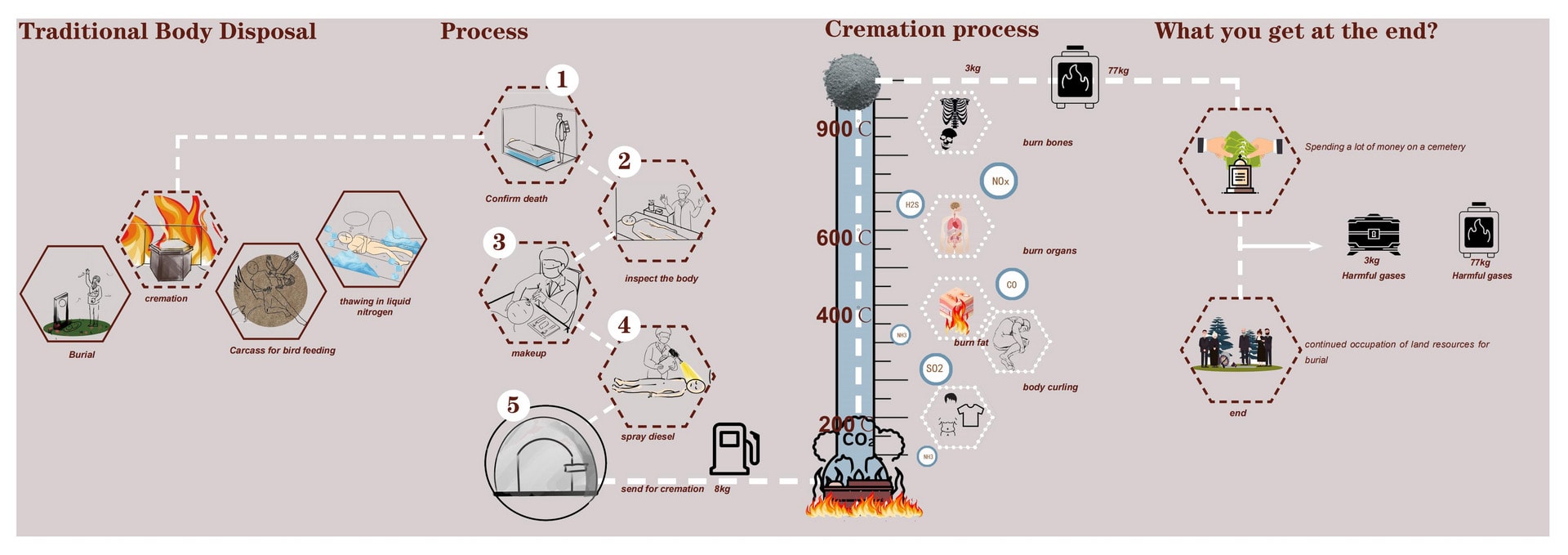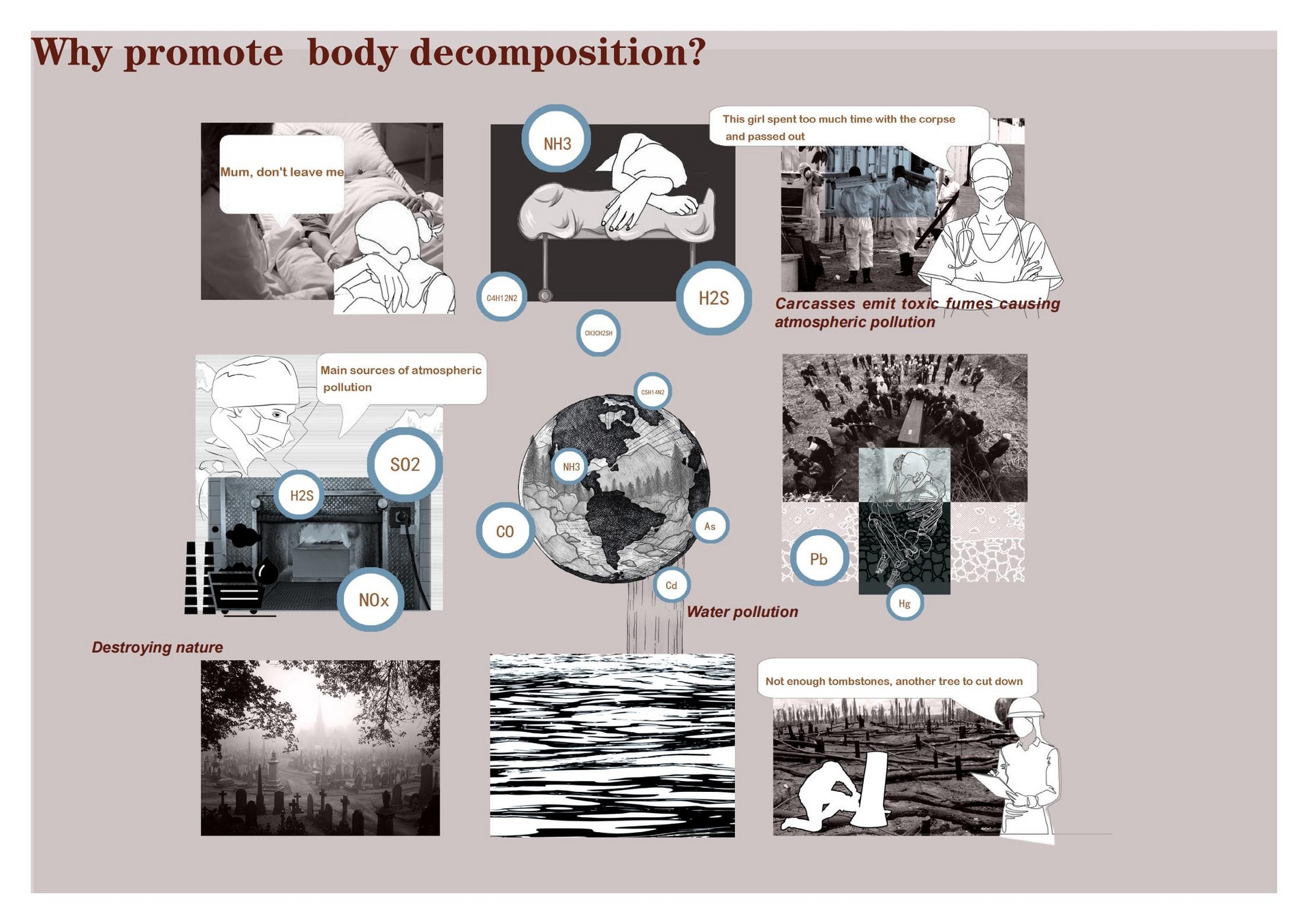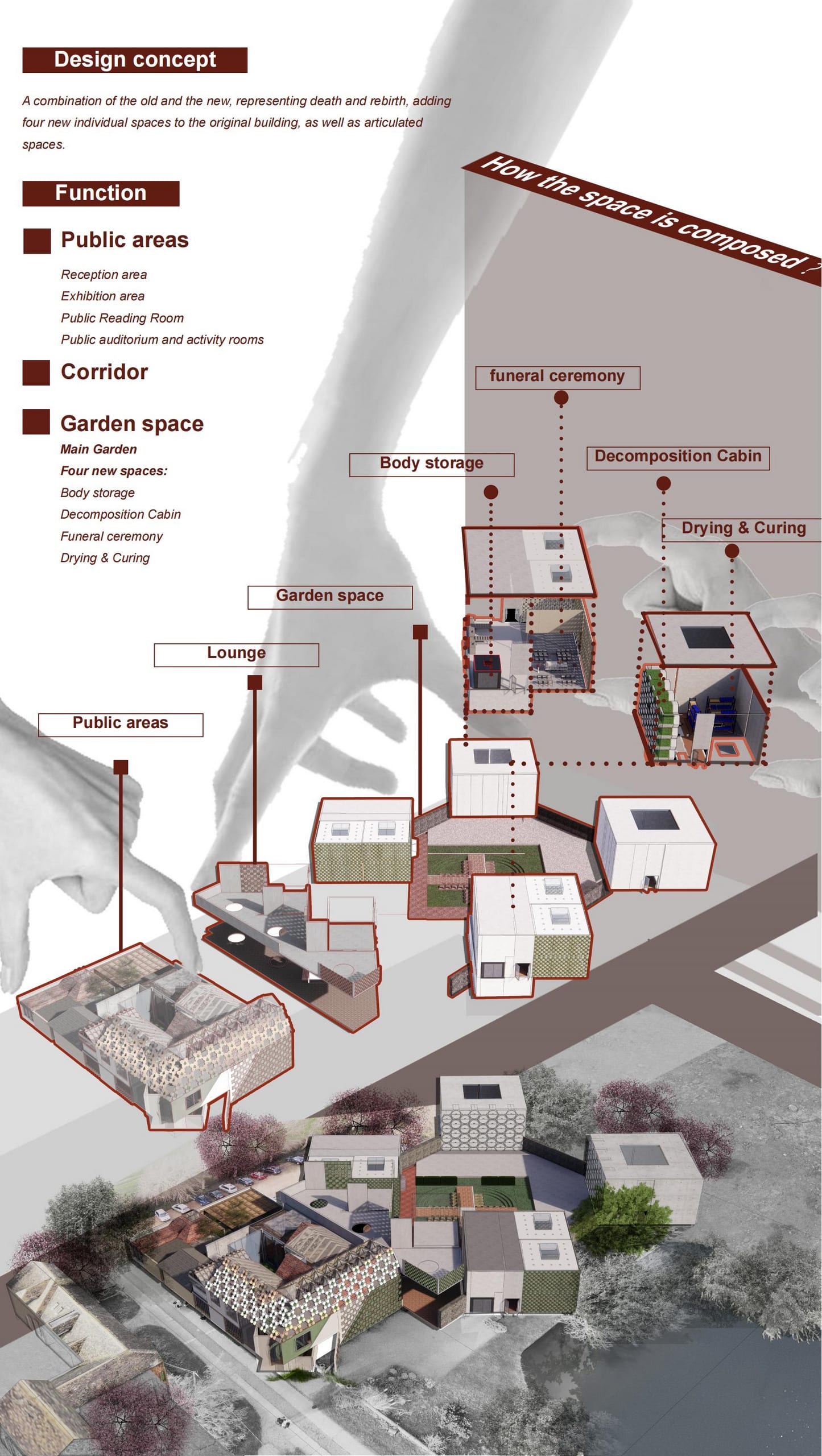In the near future, funeral homes will undergo a transformation, and instead of fearing death, society will come to accept it as part of the natural cycle of life.
Its 2050, and traditional cremation practices have been replaced by a more sustainable and environmentally friendly method: composting. This innovative approach has allowed human remains to decompose naturally, turning into fertile soil that nourishes new life.
Charleston, a city of the future, exemplifies this paradigm shift in funeral homes. Establishments like this are no longer places for handling bodies and conducting funerals; they have transformed into open, communal spaces. Within these funeral homes, people have access to various amenities such as lecture halls, libraries, and peaceful resting areas. This project seeks to ask: how can environmental pollution caused by cremation be reduced with the aim of fostering a better understanding and acceptance of death? The funeral home of the future will no longer be a space to be feared or avoided but a sanctuary of tranquility and healing.






























